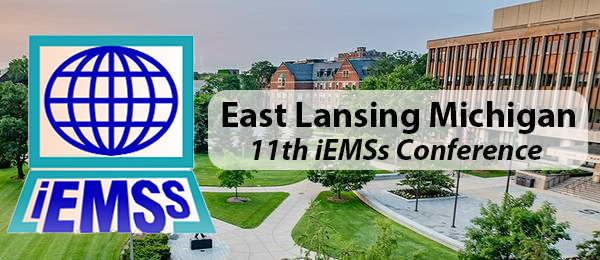Keywords
adaptive decision-making; multiple objectives; deep uncertainty; multi-agent systems;
Start Date
7-7-2022 2:40 PM
End Date
7-7-2022 3:00 PM
Abstract
Integrated assessment models have been always heavily criticized for their simplified treatment of uncertainty. Indeed, future climate impacts, the capability of countries to adapt, and many other assumptions on the socio-economic and climatic system remain hardly quantifiable and largely unknown, strongly affecting the suggested course of actions, especially under the traditional perfect foresight assumption. In this work, we extend the EMODPS algorithm to implement self-adaptive and multiobjective climate policies in RICE50+, a cost-benefit IAM that accounts for 57 autonomous regions. The obtained policies coordinate agents’ behavior in a cooperative setting under deep uncertainties in the socio-economic and climate components of the model. As the agents collect information over time, scenario uncertainty reduces, and local decisions are adjusted accordingly. Moreover, the agents design their behavior to satisfy multiple climate policy targets at the global level, such as economic welfare, temperature thresholds, and between-country income inequality. This approach deals effectively with the deep uncertainties and the multiple objectives of the domain. Furthermore, it provides an improved understanding of the conditions which influence the agents' decision-making process. The results projected allow us to investigate: i) the benefits obtained from reduced climate impacts, ii) the support for policy mechanisms such as the Green Climate Fund, and iii) the potential alternatives to strengthen alreadyexisting monetary transfer schemes.
Cooperative adaptive climate policies: an application of the EMODPS algorithm to deal with multiple objectives and deep uncertainty in the RICE50+ integrated assessment model
Integrated assessment models have been always heavily criticized for their simplified treatment of uncertainty. Indeed, future climate impacts, the capability of countries to adapt, and many other assumptions on the socio-economic and climatic system remain hardly quantifiable and largely unknown, strongly affecting the suggested course of actions, especially under the traditional perfect foresight assumption. In this work, we extend the EMODPS algorithm to implement self-adaptive and multiobjective climate policies in RICE50+, a cost-benefit IAM that accounts for 57 autonomous regions. The obtained policies coordinate agents’ behavior in a cooperative setting under deep uncertainties in the socio-economic and climate components of the model. As the agents collect information over time, scenario uncertainty reduces, and local decisions are adjusted accordingly. Moreover, the agents design their behavior to satisfy multiple climate policy targets at the global level, such as economic welfare, temperature thresholds, and between-country income inequality. This approach deals effectively with the deep uncertainties and the multiple objectives of the domain. Furthermore, it provides an improved understanding of the conditions which influence the agents' decision-making process. The results projected allow us to investigate: i) the benefits obtained from reduced climate impacts, ii) the support for policy mechanisms such as the Green Climate Fund, and iii) the potential alternatives to strengthen alreadyexisting monetary transfer schemes.



Stream and Session
false